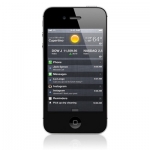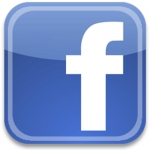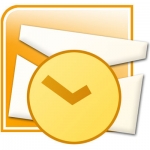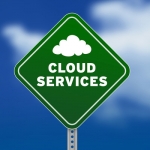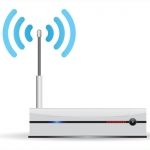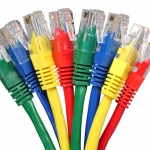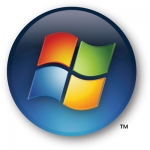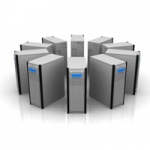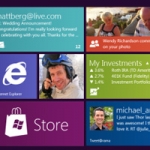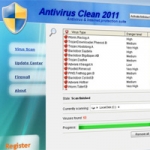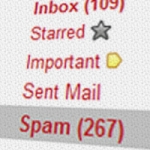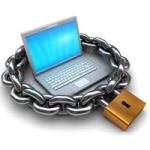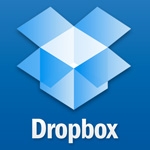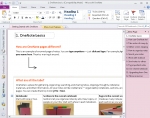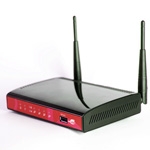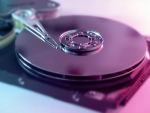Ever notice how much faster a brand new computer is compared to an older one? Think back... was your computer as slow as it is today as it was a few years ago when you first got it? How did you tolerate that back then? It turns out your computer actually gets slower over time, but to contrast that new computers are getting faster, cheaper, and more energy efficient. Computers aren't designed to last forever, and this isn't on purpose; general day-to-day usage and time give computer components a good thrashing. So why is your computer slow? Here are some Directive secrets about why your old computer struggles to keep up with you.
Directive Blogs
Plenty of Upstate New York businesses use the Microsoft Office suite of productivity tools. From Office 2007 and on, Microsoft has made it extremely easy to dress up your documents and presentations. These tricks will typically work with most Office products, from Word to Power Point, even Outlook; although in some apps the options might be in different places. Today's tutorial will focus on Microsoft Word.
The mobile smart phone market is certainly a healthy one, and powerful devices are getting into more hands (for both consumers and businesses). There are a few great selections to choose from; RIM's BlackBerry, Microsoft's Windows 7, Google's Android OS, and Apple's iPhone. The latest incarnation of the Apple iPhone hits store shelves today, although from first glance it looks the same as the previous iPhone 4. Let's take a look at some of the differences.
The Internet is without a doubt the largest collection of information humanity has ever seen. The trick is getting the information you want quickly. That's where search engines come in, and no search engine has received more recognition than Google. These 10 tricks will help you master your Google searches like a pro and get you to the information you seek faster, and you might be able to impress a colleague or two.
Here's a scenario: Tom's computer is acting up and getting a blue screen error a couple times a day. Obviously this is a problem because it drastically cuts into Tom's efficiency. Tom is a smart guy though, so his manager asks him to see if he can fix it before calling support and putting in a ticket. After all, tech support costs money. Tom spends about 4 hours across the next few days researching the issue, attempting a few things, and finally fixes it. Way to go Tom! You just saved the company money... or did you?
One of the questions we get fairly often is what are the benefits for a small business switching to a managed IT service as opposed to a break-fix-style relationship. When a new client calls upon us to resolve an issue or organize an IT project we talk to them about our proactive managed services, and often we get a reply like "Well we love your service, but we'll just call you when something is broke." Managed services offer a lot of stability and benefits for small businesses. What exactly can switching to a proactive managed services agreement with your IT provider do for your business?
As technology gets more advanced, more of it can get crammed into tinier spaces. Mobile devices used to be heavy, clunky items that could just barely get the job done; they just didn't have the oomph that your desktop workstation had. Today business owners are adopting portable powerhouses like tablets and high-end smart phones to stay connected, but for those on the go often, a laptop or netbook is often a good way to go as well. The Laptop/Netbook debate has gone on since Netbooks first emerged on the market, so let's take a look at the benefits of both.
Facebook, the enormous social network that shouldn't need an introduction for anybody, has been a fantastic way for small businesses (and major corporations and brands, and just about anyone else) to promote themselves. If you haven't established your company on Facebook (which is free, by the way), a new offer from the social network might help sweeten the deal.
Security is an important aspect to a company's continuity, and while portions of business security involve things like anti-virus and firewalls, other aspects of security can't be handled by a piece of equipment. In these cases, your organization needs to create security policies, and keep them up to date as the company grows and changes. There are many policies and sub policies that are necessary for any organization that, if non-existent, can cause chaos down the road.
Software is expensive, especially business critical software. On top of that, as a small business expands, more software licenses need to be purchased for new employees. Organizations such as the Software & Information Industry Association and the Business Software Alliance are always looking for businesses that are guilty of stealing software, and businesses that get busted get hefty fines exponentially higher than the price of the software licenses.
Netflix unexpectedly announced a split between their two offerings, DVD-by-Mail and their streaming service into two separate services. This is surprising as Netflix has continued to grow in popularity and profits every quarter. Why fix what isn't broke? After all, the streaming portion of Netflix claims about 20% of North America's bandwidth during peak hours, which is certainly saying something. Is there something for small businesses to learn from Netflix?
In today's IT industry, downtime can have a huge impact on your company's bottom line. When system downtime occurs, whether it affects an individual employee or the entire company, it means lost money. The definition of the term "downtime" is very ambiguous, although at Directive we consider any issue where an employee can't do their job properly due to technology not being available to be downtime. Even though an application may be up and running, it is essentially "down" to a user if the application can't be used no matter the reason.
Sometimes studies like these are laughable, but nevertheless, worth discussing. Norton's latest Cybercrime report suggests that people who fall victim to malware are statistically more likely to be mugged in real life. If someone is careless when it comes to online security, could that really reflect how susceptible they are in everyday life?
Cloud computing is the new way to get things done for small businesses. It's easy, it's secure, and it is great for the environment. According to a report put on by the Carbon Disclosure Project, cloud computing can potentially reduce the world's carbon emissions by millions of metric tons. The differences are wildly significant compared to running your own in-house data centers, even if you just have a server or two.
Ever since we've been providing tech support for small businesses in Upstate New York, we've seen countless blue screen of deaths. If you've been using PCs for a while, you've probably seen this ominous screen. You'll be working and for apparently no reason your computer monitor will go deep blue and display white error text and the only way to get back to work is by rebooting your computer. What causes this error, and what does it mean, and what should you do if you encounter one?
Wi-Fi can drastically increase your mobility around the home and office, and over the past few years wireless technology has become faster and incredibly reliable. Unfortunately, the signal only goes so far, and can be obstructed by walls, metalwork, and other features throughout the building. If you want to boost your signal, you can try out some of these tips.
Last time, we blogged about whether or not social media and personal Internet use was a bottleneck for employee productivity. Let's not look at the Internet as a fundamental time-waster or a necessary evil. After all, the Internet has changed the way companies do business. This time we're going to investigate if your Internet is keeping up with your company.
The words Productivity and Internet have been fit together in many different sentences, and usually in the sense that the Internet is a Productivity-killer. Take Facebook, for example; there are many arguments stating that Facebook is costing companies billions of dollars because employees are spending too much time on the social network while at work. Of course, Facebook (and the other social networks) are practically mandatory for businesses who want to market themselves. Other companies are clamoring that personal social media use greatly improves productivity and employee moral.
Want to look like a PC Pro and get more done faster? With these simple tips, you'll have the skills to impress your co-workers with a few keystrokes. The Windows 7 Taskbar is the menu bar that stretches along (typically) the bottom of your screen. These are some lesser-known productivity tips to streamline your Windows 7 experience.
For some small businesses around Upstate New York, administrative IT tasks and computer support are done the old fashioned way; either over the phone or on-premise. These traditional methods are a major waste of time and money, and can lead to plenty of unproductive behavior very quickly. Today we're going to examine how remote technical support can benefit businesses.
Apple CEO Steve Jobs has resigned from the consumer electronic company. Leaving behind a legacy that has made Apple considered ahead of the curve technology-wise several times, and has changed the game in the industries that he's touched. While Microsoft still rules the personal computer market globally towering over OSX's 8.3% market share, Apple has certainly played a major roll in paving a path to high-end electronics and devices over the past decade that has raised the bar for companies, and has even created a few new industries to boot.
2011 has been a busy year for security experts worldwide. Major corporations have been reporting harmful attacks by hackers. So far, technology news site CNET has reported over 80 known major hacks since March that have been publicized. The publication of these hacks is inevitable, especially when user-data, contact information, and credit card information is at risk, and that publication can easily cause a PR disaster which can take loads of time and money to rectify (and in some cases, just can't be rectified). The big questions are who is at risk, are Upstate New York small businesses at risk, and what kinds of IT solutions need to be deployed to prevent data-theft and other intrusions.
Cans of compressed air are no stranger to many households today. They can be used in a variety of different ways, but, most notably, they can be used to perform light maintenance on your computer. Whether you use a laptop or a desktop, a can of air can clean parts of your computer that, if left unchecked, could lead to costly repairs. Dust is one of the leading causes of hardware malfunction for computer equipment. Dust can blanket the heat-producing components and restrict airflow, trapping enough heat to cause damage. Fans and vents can get clogged which will prevent your device from cooling properly, which can drastically reduce the life of your technology.
While search engines aren't as frustrating as they were in the late 90's. Searching for something can still be a time consuming task if you don't know how to use the tools available to you in search engines that can cut down the amount of time you'll spend searching. Google is similar to a library's catalog, except you're not searching through thousands of books; instead you are searching through millions upon millions of websites. How do you sift through this giant pile of information to find what you need? Learning a few simple techniques can help you find the information you need fast.
It's the start of the 2011 hurricane season, and with Hurricane Irene making contact with Atlantic coastlines this week, it certainly doesn't hurt to make sure your business is prepared for a disaster. Even if you are lucky enough to not be affected by these devastating storms, there are plenty of opportunities for nature to cause havoc on our way of life. It's never to late to put together a Disaster Recovery Plan (alternatively known as a Business Continuity Plan) in case a natural (or otherwise) disaster were to occur for you. Nobody wants to think a disaster might happen, but it isn't impossible. Here are a few steps small businesses can take to become better prepared.
Don't you hate it when you contact us for tech support with a strange issue, and then you can't recreate it? Don't feel bad. It happens all the time, even to us. Sometimes those rarely occurring issues can't be fixed unless you get some photographic evidence of what's going on. This quick guide will show you how to take screenshots of your desktop.
Ever since the mid-1990s employees have been taking advantage of personal gadgets to help them get work done faster. Remember the PDAs and Palm Pilots from a decade and a half ago? Even though many companies weren't quick to establish policies to protect corporate data, tech savvy users were able to sync contacts, schedules, email, and company files to their mobile device. These days, mobile devices are in the hands of many more users, but there are ways to provide security without sacrificing your employees rights to their personal device.
USB thumb drives are fantastic. Small, portable, fast, and highly compatible; these devices make it easy to transfer files and documents from one place to another. If you are burning the midnight oil working on a presentation or document from home, a thumb drive is a fast, cheap solution for grabbing those files and taking them from one device to another. Of course, there are plenty of other alternate ways to move files that are even easier and even more fool proof (how many of you have lost a thumb drive or let one go through the wash?), so the thumb drive has been becoming less popular for businesses. If you hate to see perfectly good technology go to waste, check out these 3 tricks that give new life to your old thumb drive.
If you use email, you've probably seen spam. If you think we're talking about a canned meat product, and are wondering how it relates to email, then we envy you. For everyone else, saying your inbox probably has a little spam is a dramatic understatement. Spam comes in several different flavors; ranging to inappropriate solicitations to unwanted gibberish to carefully coordinated scams. We're going to go over one of these tricky spoofs that is known to fool users.
At the beginning of the month, Microsoft officially launched Office 365. What makes this Office different from the other Office suites that Microsoft has released is that Office 365 doesn't run on your computer, it runs on a cloud server. All of your data is stored securely in the cloud on Microsoft's servers. This is great for smaller Oneonta businesses that need to access their files from anywhere but don't currently have the infrastructure in-house to make it happen.
You've probably heard of cloud technology. All the big names in the technology industry are talking about it; but for a lot of people, it's still just a buzz word. Microsoft has been pushing the idea of a cloud for a while, with a couple sitting at an airport waiting for a layover, with the end result being that the cloud ceases their boredom by letting them stream movies from home. What exactly is the cloud and why does it matter for businesses?
The Internet giant Google is well know as being the primary search engine on the Internet and the definer of many web standards. The Big G isn't afraid to trek into new and exciting verticals. Google Wallet is one of those endeavors. Google states that Google Wallet has been designed for an open commerce ecosystem. Their goal is to eventually replace the cards that you keep in your wallet. Since Google wallet is a mobile application it can store as many cards as you want without having to carry multiple cards.
Virtualization isn't new for small businesses, some companies have been enjoying the benefits of server virtualization for many years. However, the concept is new to other growing organizations. Virtualization allows you to consolidate the number of servers you have in your company using one of several virtualization packages. Let's take a look at a few major reasons to consider server virtualization.
For a small or midsize business, technology budgets are naturally fairly slim. It goes without saying that a company needs to get the best bang for their buck with their IT infrastructure, and it's not uncommon to see workstations and other devices still in play years after their prime. This leads to underperforming technology, which in turn, limits what your bottom line can accomplish (remember, your team is only as good as your worst player). Some small businesses are approaching technology in ways that would normally be reserved for HR's interactions with employees, but they are finding that this can improve performance.
We've been talking a bit about the benefits of going mobile, especially for business owners who want to get more done. One of the best benefits of a laptop computer is portability, which leads into its greatest weakness; it's easy to steal. According to the FBI, over 1 million laptops are stolen each year. If you are using your laptop for business, you'll want to take action ahead of time and employ some protective countermeasures to keep your business safe. We'll even go over some ways you can recover your stolen laptop.
Small business owners are discovering they don't need to be chained to their desk to use their computer, and are finding it much easier to be productive with the ability to take their workstation with them where ever they go. The concept isn't new, but the trend hasn't caught on for a lot of small businesses. Business owners who have ditched their desktop for a laptop have a whole world of benefits. Let's take a look at what some of those benefits are.
We're in an interesting era. Consumer electronics have been changing the way we communicate, socialize, and get things done. We've all experienced a recent huge evolution in the communication world with the explosion of mobile phones, with more than 4.6 billion mobile subscribers worldwide. Our technology is getting smaller and much more capable, but does that mean we'll be moving away from the typical computer-and-desk to get most of our work done?
There has been a lot of talk about Google+, Google's new social network. Currently the service is invite only and invites are preciously coveted. Those who have gotten in to try it out have found a clean, simple interface. On first impression, Google+ looks like a very basic Facebook. Is Google+ worth all the clamor and is it going to change the game for social media? Will businesses be able to take advantage of Google+ the same way they do for Twitter, Linked In, and Facebook?
At many businesses, if you look in the waste bin or the recycle bin, you'll probably find a lot of paper. Paper is one of the most common waste products at businesses and as such is also one of the biggest sustainability opportunities for businesses large and small. The environmental benefits are great, but going paperless has some huge benefits for small businesses beyond being green.
Who isn't looking to spend a little less or get more out of their current investments? The costs of day to day business for small businesses need to be within budget, but you still need to give your staff the tools they need to get the job done. Here are some tips for cutting costs without making big sacrifices.
Windows 8? Doesn't it feel like Windows 7 just came out? Windows 7 isn't being replaced anytime soon; the latest operating system by Microsoft hasn't even been out for two years, but that doesn't mean Microsoft isn't cooking up their next incarnation. Microsoft has always kept small businesses in mind as well as the residential consumer, so will Windows 8 stick with the same trend?
Laptops and Netbooks boast portability, but many laptop users find that they need to take their power cables with them if they want their device to run for more than a couple hours. While older laptops are typically less efficient, it also isn't uncommon for the batteries to wear down over years of use. Sure, you can purchase a new (or bigger) battery, but let's go over a few ways you can improve the battery life on your laptop.
Have you ever been browsing the internet when out of nowhere your computer starts telling you that you are at risk or that you've downloaded a virus, and before you know it your screen is inundated with warnings and virus scanners? In most cases, this over-dramatic display is caused by a fake antivirus program. Today we're going to discuss how to prevent getting tricked by a fake antivirus attack.
Telecommuting (also known as working remotely) is where some or all of your staff have the flexibility to work in the location of their choosing (and in some cases, the hours that they choose). Not to be confused with freelancing, telecommuters are dedicated employees who work under a management style geared towards the final results (as opposed to how the work gets done). While telecommuting isn't for everybody, it is often practiced. Microsoft is well known for having certain positions where the employee spends most of their day in a coffee shop working remotely, and that trend certainly doesn't stop with the big M.
Today, small businesses that go green and take action towards reducing energy consumption, waste production, and apply sustainability concepts benefit from a lower cost of day-to-day business. Being green looks great for investors, employees, and consumers alike and can contribute to press and media attention. That sounds great, right? Unfortunately, like most things, going green isn't something you can do over night. It takes time, dedication, and sometimes, a little bit of investment. Hit the jump for some tips to go green with your business.
Is your computer's speed (or lack there of) stressing you out? Intel sponsored a survey and found that computer users experience stress while waiting for their sluggish workstation to respond. They found that 51 percent of adults surveyed said they have done something 'uncharacteristic' out of frustration while waiting for something to load, and of those, 29 percent admit to banging on their keyboard and computer screen. The survey may sound fairly comical, but humans don't like unexpected waiting, especially when we're trying to meet deadlines and get work done. It's a pretty fair assumption to say slow technology is stressful.
Fortunately, there are a few steps that can be taken that will likely give your workstation a little boost, at least closer to where it was when it was first unboxed.
Ever sift through all that junk mail and wonder if you are in the wrong line of work? Obviously the spam industry is working for somebody, or else it wouldn't still be running your inbox rampant with unsolicited junk, right? Spam is more than just a nuisance for small businesses. Hit the jump to find out why.
Patch Tuesday is typically the second Tuesday of each month, and is the day Microsoft releases security patches for Windows Update. This month's Patch Tuesday has some of the most significant updates compared to the past several months, fixing many dangerous flaws with imminent exploits. These are critical updates that, if not installed, will leave computers vulnerable to attack.
Want to get more done in a days time? We all do. If you are a business owner, it is likely you'd love to see your employees get more accomplished during the course of the day. There is a lot that can be done to make your time more efficient (that is an industry all on its own!), but one very frustrating cause of lost productivity is faulty technology. The most overlooked culprit? Slow computers!
Hit the jump to see our analysis of what workstation slowness can cost your company.
Sometimes the best things in life are free, and software is no exception (who doesn't love FREE?). Surprisingly, free applications can rival the more expensive commercial apps that offer similar features. We aren't necessarily saying these apps are ready for businesses to use, but for a home user who doesn't want to purchase expensive commercial software, free is the way to go.
As you may know, Sony's online gaming service, the Playstation Network, has been getting a lot of media coverage lately due to a major attack by hackers last month. Sony is a massive global company with billions of dollars and stockholders and spans multiple industries, but even a giant can teach us all a lesson that relates to our comparably small-fry organizations.
Veterans to building and running small and medium-sized businesses probably know about the huge initial start-up costs. A small business needs to consider investing in all of the necessary infrastructure, from things like desks, chairs, computer equipment, security devices, break room appliances, heat, air conditioning, a website, marketing materials… the list goes on. Today, small businesses are finding new ways to streamline and reduce the costs of getting started. Hit the jump to see a few ways small businesses are cutting high start-up costs.
Computer equipment is expensive, but most people don't even think about the costs it takes to run an entire office worth of tech. Modern hardware is becoming more and more energy efficient, but older equipment can take a lot of electricity to run (not to mention the maintenance of keeping things running smoothly. One of the biggest energy hogs in an office these days are old CRT monitors.
We'd really like to gear this conversation towards the other Oneonta business owners out there who might not have a solid plan when it comes to IT & Computer Support. At DirectiveSHORT, we deal with a lot of the same business-related issues that our clients do. Marketing, driving the business forward, taxes, internal policies, you name it. Believe it or not, we also have our own IT infrastructure that needs to be kept up and maintained. We see the same kinds of expenses (after all, working on our OWN technology internally is time our techs could be doing their jobs). We've put together a few big mistakes that we've seen businesses make that take much less effort to prevent than they do to fix later on when it is too late.
Microsoft Office still holds a very strong position in the small business world despite some serious competition from Google, who boasts having their software package hosted online. The latest incarnation of the Microsoft Office suite, named Office 365, is designed to rival Google's offering. Today we're going to talk about Microsoft's hosted productivity software and see what the pros and cons are for small businesses.
Have you ever noticed that the vents around your computer seem to pick up a lot of thick dust? Computers and Laptops house internal fans that keep the inside components from overheating, which essentially makes them mini-vacuums that constantly suck air and dust in. Dust can act as an insulating blanket and prevent your hardware from cooling, causing damage over time and wearing down your computer faster. Hit the jump for some more information and some ways to help keep your computer clean so it can live a long healthy life.
Remember in "Mission Impossible," after an agent listens to his secret mission, the recording goes on to mention "This message will self destruct…" followed by the oversized tape-recorder puffing out billows of smoke. Businesses have gone a long way since then (we've replaced sending tape-recorders with the much more efficient email), and encrypting email messages is easy and cost effective for businesses that want to ensure that certain messages are only seen by certain recipients.
If you haven't heard of Dropbox, you are in for a real treat, especially if you like making it extremely easy to access certain files. Dropbox is a service that provides secure file hosting and synchronization between multiple computers and devices so you can quickly access the data you need most no matter where you are, and when you get back to your main workstation, the updated version of the file will be there waiting. Did I mention Dropbox has a free version? Hit the jump to learn why we love this service.
We're asked all time, both by existing clients and during dialog while on boarding new prospects to our NOCOLOGY IT Support Services. 'What exactly is the point of running Windows updates, especially when my workstation or server is running fine?'
We'll cover why updates are so important, discuss a couple ways you can make sure they are always done as well as how we test and prevent "bad updates".
We can never stress enough to our clients how important their data is. There are plenty of ways data can become lost, but the one scenario that nobody ever likes to talk about is internal data theft. That's right; businesses can suffer from their own employees stealing data. Now, this doesn't mean that all or any part of your staff is plotting to expose company secrets or distribute your leads to competitors, but a few precautions can be taken to just ensure that it never happens.
Microsoft's OneNote is often seen as one of the extra applications that is bundled in with several Microsoft Office packages. In this article, We'll introduce OneNote, and show off some neat things it's used for, and how it can make your life easier. OneNote has a whole slew of neat features that you can take advantage of, which we'll cover in the article as well.
You are running a business. You don't want downtime, you want your email to be as reliable as the sunrise. Google Apps has been adjusting their service level agreements over the years to accommodate to the high demands of the millions of businesses that use their productivity software each day.
Before we talk about that though, I wanted to share an announcement Google recently had. In 2010, the Gmail email service, which provides both free consumer and business email services globally, was available 99.984% of the time. That means about seven minutes of downtime per month on average was experienced in 2010. According to Google, the seven minute average comes from a lot of tiny delays that normally consisted of a few seconds a shot. Most users experienced no issues, and in the rare case they did, a few seconds of delay is pretty easy to miss.
I'm sure nobody has missed out on any of the storms happening here in New York. Even our lights have been flickering. Mother nature can be cruel to your IT; a well-placed bolt of lightning can do plenty of damage. Of course, we always recommend quality UPS systems to our clients to protect their most valuable tech, and good surge protectors for everything else (not power strips, mind you, they aren't the same). Regardless, whether there's a risk of the power going out or not, it's important to save often and keep your files backed up. Here's a few tips after the jump.
A lot of businesses have been taking advantage of Wi-Fi wireless networking to increase mobility around the office for staff. Most businesses seem to understand that their Wi-Fi network needs to be password protected to keep outsiders from getting in, but most businesses often make the mistake in using WEP security on their wireless network instead of a more secure solution.
The WEP algorithm can be hacked in minutes by a savvy user with a notebook, not only giving them access to your internet access, but to your network and files. Read on to learn a better way to secure your wireless network.
Let’s take a break from all of this technical mumbo-jumbo and talk about something that is much more important: health. You could have an arsenal of the world’s coolest gadgets and technology in front of you, but if you aren’t practicing good health habits, they won’t do you a lot of good for very long. Normally when we think of injuries, we think of doing something that pushes our body’s limits. Injuries can occur just from practicing poor habits during those 8-hour daily work marathons many of us run each day. I’ll go over a few simple ways you can optimize the ergonomics of your work environment to improve comfort and prevent physical stress associated with bad habits often found in the workplace.
We’re not trying to be negative here. We're not trying to scare you and make you run out and buy a backup device (We’ll save those horror stories for another time). Today we’re going to talk about why hard drives fail. It doesn’t matter what manufacturer your drive comes from, what connection interface it has, who you bought your computer from, and believe it or not, it has nothing to do with the day your warranty runs out (no sir, that’s just a Murphy’s Law coincidence). All hard drives are built in pretty much the same fashion.
If you don't have an Exchange Server, it's likely that your email isn't being backed up. Fortunately, with Microsoft Outlook, it's not very difficult to create a copy of your email, contacts, calendar, and other Outlook data. While this isn't a complete backup solution, you can at least take the current state of your Outlook data and store it elsewhere for safe keeping in the event of data loss or a hardware malfunction that causes you to lose your precious data.
Plenty of our clients use Remote Desktop to access a terminal server or use their workstation from an off-site location. Depending on your connection and the speed of all of the devices in question, remote work can either be pretty seamless or a laggy, sluggish endeavor if your Remote Desktop client isn’t configured correctly. If you are running into a situation where you type something on your keyboard and it takes several long seconds for it to show up, these tweaks can improve performance and reduce input delays.
When searching for a word or phrase in a program or website that has hundreds of files it can be quite time consuming. When browsing these files the user might miss what they are looking for in the thousands of lines that they have to look through, causing the search to start all over again. A user can narrow down their search based on what they are trying to find, maybe it is wording that would be in a language folder somewhere. In some places there are multiple language folders, with multiple files in each.
Everyone has heard of Google. The word itself is synonymous with searching the web. If you don’t know something, what do you do? You Google it. It’s become part of the internet vernacular. You rarely hear folks say they are going to Yahoo that when they get home, or come across a solution by Binging it.
Like it or not, Google has become a part of our lives, but it certainly hasn’t done so without deserving it. It is the leading search engine, and has earned it by being reliable. When you search for something on Google, you find what you want. It’s not easy to manipulate the system, and that’s why people trust Google so much.
What a weird post this is going to be. We've recently launched a software application called JoomConnect. It's been having some great success. It's in part responsible for bringing a lot of work to our small company bringing our staff from 9 to 17 strong in a very short time (7 of them in 60 days). It's been awesome and we've been training and getting everyone up to speed. We have been super impressed with the new members of our team and we'll be introducing them shortly (soon as we can catch our breath).
We are working for some of the industry greats, like ConnectWise, HTG Peer Groups and many incredible IT/MSP Partners that have adopted JoomConnect for use in their businesses as well as our awesome local clientele.
The Ultimate Social Media Rig Project Plan is now on the ConnectWise University.
ConnectWise Partners can download the template from the ConnectWise University and launch their own Ultimate Social Media Rig for themselves or resell it as a service for their clients.
There's no need to enter the Word Doc into a project anymore! Simply import the project and roll it out!
Partners can find the USMR Project Template under Shared Templates on the ConnectWise University.
*Note* An update version for 2014 has been posted to the ConnectWise Marketplace
Search for "Ultimate Social Media Rig - Revised 2014"
The time to implement a social media policy is now. Your social media policy outlines for employees your companies guidelines or principles for communicating in the online world. Your company should have a communications policy in place that spell out your expectations for phone and email, it’s important that you add social media and online site usage to this policy.
We grew a lot in 2009. This is a great thing but it has also exposed a lot about our company that we want to improve on. It's pretty obvious what we need to work on to support the growth we expect in 2010 and beyond.
While this isn't a complete list, here are 10 of the things we are going to focus and improve on this year. They are in no particular order:
Directive has had the pleasure of working with David Mann for over 10 years. David owns Alta Log Homes in Upstate NY. Alta is a leading manufacturer of Log Homes. David is an expert in building Green, Energy Star dream homes and a great guy. His website is http://www.altaloghomes.com. We set him up with the Ultimate Social Media Rig a few months ago along with some coaching services to get him started. He's been pretty religious about posting and using it. He sent me an email asking what recommendations I'd have to get more out of it now that he's "warmed up" and has a little more experience with Social Media.
Recently, I was asked to speak at a breakout session called "Jumpstart Social Media for your IT Business" at the ConnectWise PSA 2009 Partner Summit. What a great event, we learned so much for our MSP practice, we are still implementing! Some of the power point slides from the breakout show our Project Plan for rolling out our "Ultimate Social Media Rig". We promised to get the project plan posted on the site. Rather than post just screen shots, we made it easier for you to get started and typed it up too, copy/paste ftw.



